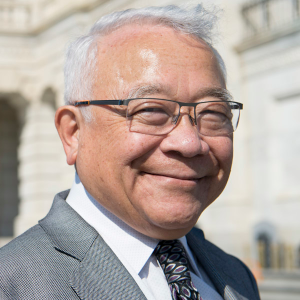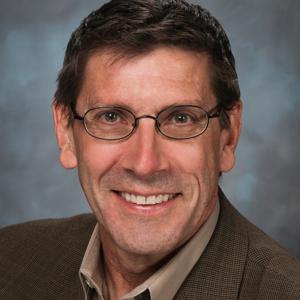Session Abstract – PMWC 2025 Silicon Valley
Track Chair: Keith Yamamoto, UCSF
- PMWC 2025 Award Ceremony:
Pioneer Honoree: Robert Califf, FDA
Luminary Honoree: Ida Sim, UCSF
- Fireside Chat: Keith Yamamoto, UCSF, Robert Califf, FDA, and Kathy Giacomini, UCSF
- Keynote: Harnessing Computational Tools in Precision Medicine: Implementation and Future Directions
- Ida Sim, UCSF
- AI-driven Advances in Precision Medicine (PANEL)
Chair: Sharat Israni, Bakar Institute, UCSF
- Peter Norvig, Google
- Susan Lynch, UCSF
- Olivier Gevaert, Stanford
- Michelle Arkin, UCSF
- New Federal Programs Driving Transformative Health Breakthroughs (PANEL)
Chair: Keith Yamamoto, UCSF
- Charles Romine, NIST
- Erwin Gianchandani, NSF
- Jim Brase, Lawerence Livermore National Laboratory (LLNL) - AI-Driven Protein Design (PANEL)
Chair: Tanja Kortemme, UCSF
- Franziska Seeger, Genentech
- William Degrado, UCSF - AI and Ethical Challenges (PANEL)
Chair: Alex John London, Carnegie Mellon University
- Jianying Hu, IBM
- Cora Han, University of California Health
- Ida Sim, UCSF
Speaker Profile
Biography
Dr. Yamamoto is a leader in science and public policy. He has made an indelible impact by simultaneously advocating for Precision Medicine across the .edu, .gov, .com and .org sectors. As Chair of the National Academies Board on Life Sciences, he appointed and served on the study committee that produced Toward Precision Medicine: Building a Knowledge Network for Biomedical Research and a New Taxonomy of Disease, the report that enunciated the precision medicine concept. He helped to stimulate President Obama's interest, which led to the Precision Medicine Initiative, as well as Gov. Jerry Brown's launch of the California Initiative to Advance Precision Medicine. He also promoted a precision medicine approach to Vice President Biden's Cancer Moonshot, provoked broader participation by the corporate and nonprofit sectors, and directs UCSF Precision Medicine, an institutionwide imperative. In addition, Dr. Yamamoto has led or served on numerous federal or national committees focused on public and science policy, public understanding and support of biological research, research funding and peer review, and science education and the biomedical workforce; he chairs the Coalition for the Life Sciences, and sits on the National Academy of Medicine Council and Executive Committee, and the National Academy of Sciences Division of Earth and Life Studies Advisory Committee. He is a member of the Advisory Board for Lawrence Berkeley National Laboratory and the Board of Directors and Executive Committee of ResearchAmerica. At UCSF, Dr. Yamamoto is vice chancellor for science policy and strategy and professor of cellular and molecular pharmacology. He is a leading researcher, investigating transcriptional regulation by nuclear receptors, which mediate the actions of essential hormones and cellular signals; he uses mechanistic and systems approaches to pursue these problems in pure molecules, cells and whole organisms. He is an elected member of the National Academy of Sciences, the National Academy of Medicine, the American Academy of Arts and Sciences, and the American Academy of Microbiology, and a fellow of the American Association for the Advancement of Science.
Speaker Profile
Biography
Dr. Robert Califf, a distinguished cardiologist and clinical trial expert, has significantly contributed to the field of precision medicine. Serving twice as the Commissioner of the U.S. Food and Drug Administration (FDA), Dr. Califf has played a pivotal role in advancing regulatory science and fostering the development of innovative medical products. His tenures at the FDA were marked by efforts to modernize clinical trials, enhance drug safety, and accelerate the approval of life-saving therapies. Additionally, Dr. Califf's leadership in the NIH's Precision Medicine Initiative has helped lay the groundwork for personalized treatment strategies that are transforming patient care.
Talk
I have worked at the interface of evidence generation, biomedicine and health outcomes for my career. Most of my career was spent as a busy clinician, doing clinical and translational research in this setting. My most recent decade has been spent in administration, regulation and digital health tools.
Speaker Profile
PMWC LUMINARY AWARD
Pioneered health data sharing and integration advancements, including co-founding Vivli and Open mHealth and developing CommonHealth, significantly advancing clinical care, research, and global clinical trial data sharing and mobile health data interoperability.
M.D., Ph.D., Professor, Chief Research Informatics Officer, UCSF
Biography
Ida Sim, MD, PhD is UCSF Professor of Medicine and Computational Precision Health, Co-Director of the UCSF UC Berkeley Joint Program in Computational Precision Health, and UCSF’s first Chief Research Informatics Officer. She obtained a B.Sc. in Biology, an MD, and a PhD in Medical Informatics from Stanford. A practicing primary care physician, Dr. Sim completed her Internal Medicine internship and residency at the Massachussetts General Hospital and fellowships in General Medicine and Medical Informatics at the Palo Alto VA.
Dr. Sim’s research focuses on technology and policies for large-scale data sharing of health data. She is Co-founder of Open mHealth, a nonprofit organization that defines the IEEE 1752 global open standard for patient-generated health data interoperability. She is also Co-Founder of Vivli, the world's largest data sharing platform for participant-level clinical trial data. Her current research centers on the JupyterHealth and CommonHealth platforms for integrating smartphone and sensor data for management of multiple chronic conditions in primary care. In prior work, Dr. Sim was the founding Project Coordinator of the World Health Organization’s International Clinical Trials Registry Platform and led the establishment of the first global policy on clinical trial registration.
Dr. Sim has been recognized for her contributions with membership in the National Academy of Medicine and the American Society for Clinical Investigation. She is a recipient of the United States Presidential Early Career Award for Scientists and Engineers and a Fellow of the American College of Medical Informatics. Recently, she was a lead author on a NEJM article titled “The Ethics of Relational AI — Expanding and Implementing the Belmont Principles.”
Speaker Profile
Biography
Dr. Giacomini is a world-renowned pharmacologist with many years of research experience focused on transporter biology and pharmacogenomics. Her research is focused on influx transporters, particularly influx transporters involved in drug disposition and targeting. In the early 2000s, she began a comprehensive research program focused on pharmacogenomics of membrane transporters and published many papers ranging from functional genomics of transporter polymorphisms to clinical studies elucidating the role of transporter polymorphisms on clinical drug response. Dr. Giacomini is also the Co-Principal Investigator of the UCSF-Stanford Center of Excellence in Regulatory Sciences and Innovation (CERSI), a major center funded by the U.S. Food and Drug Administration with the goal of advancing scientific issues related to the safe and effective use of medical products. She has been recognized by many awards and is an elected member of the National Academy of Medicine. In 2022, she was appointed dean of the UCSF School of Pharmacy.
Speaker Profile
Biography
Dr. Robert Califf, a distinguished cardiologist and clinical trial expert, has significantly contributed to the field of precision medicine. Serving twice as the Commissioner of the U.S. Food and Drug Administration (FDA), Dr. Califf has played a pivotal role in advancing regulatory science and fostering the development of innovative medical products. His tenures at the FDA were marked by efforts to modernize clinical trials, enhance drug safety, and accelerate the approval of life-saving therapies. Additionally, Dr. Califf's leadership in the NIH's Precision Medicine Initiative has helped lay the groundwork for personalized treatment strategies that are transforming patient care.
Speaker Profile
PMWC LUMINARY AWARD
Pioneered health data sharing and integration advancements, including co-founding Vivli and Open mHealth and developing CommonHealth, significantly advancing clinical care, research, and global clinical trial data sharing and mobile health data interoperability.
M.D., Ph.D., Professor, Chief Research Informatics Officer, UCSF
Biography
Ida Sim, MD, PhD is UCSF Professor of Medicine and Computational Precision Health, Co-Director of the UCSF UC Berkeley Joint Program in Computational Precision Health, and UCSFs first Chief Research Informatics Officer. She obtained a B.Sc. in Biology, an MD, and a PhD in Medical Informatics from Stanford. A practicing primary care physician, Dr. Sim completed her Internal Medicine internship and residency at the Massachussetts General Hospital and fellowships in General Medicine and Medical Informatics at the Palo Alto VA.Dr. Sims research focuses on technology and policies for large-scale data sharing of health data. She is Co-founder of Open mHealth, a nonprofit organization that defines the IEEE 1752 global open standard for patient-generated health data interoperability. She is also Co-Founder of Vivli, the world's largest data sharing platform for participant-level clinical trial data. Her current research centers on the JupyterHealth and CommonHealth platforms for integrating smartphone and sensor data for management of multiple chronic conditions in primary care. In prior work, Dr. Sim was the founding Project Coordinator of the World Health Organizations International Clinical Trials Registry Platform and led the establishment of the first global policy on clinical trial registration.Dr. Sim has been recognized for her contributions with membership in the National Academy of Medicine and the American Society for Clinical Investigation. She is a recipient of the United States Presidential Early Career Award for Scientists and Engineers and a Fellow of the American College of Medical Informatics. Recently, she was a lead author on a NEJM article titled The Ethics of Relational AI Expanding and Implementing the Belmont Principles.
Speaker Profile
PMWC LUMINARY AWARD
Pioneered health data sharing and integration advancements, including co-founding Vivli and Open mHealth and developing CommonHealth, significantly advancing clinical care, research, and global clinical trial data sharing and mobile health data interoperability.
M.D., Ph.D., Professor, Chief Research Informatics Officer, UCSF
Biography
Ida Sim, MD, PhD is UCSF Professor of Medicine and Computational Precision Health, Co-Director of the UCSF UC Berkeley Joint Program in Computational Precision Health, and UCSFs first Chief Research Informatics Officer. She obtained a B.Sc. in Biology, an MD, and a PhD in Medical Informatics from Stanford. A practicing primary care physician, Dr. Sim completed her Internal Medicine internship and residency at the Massachussetts General Hospital and fellowships in General Medicine and Medical Informatics at the Palo Alto VA.Dr. Sims research focuses on technology and policies for large-scale data sharing of health data. She is Co-founder of Open mHealth, a nonprofit organization that defines the IEEE 1752 global open standard for patient-generated health data interoperability. She is also Co-Founder of Vivli, the world's largest data sharing platform for participant-level clinical trial data. Her current research centers on the JupyterHealth and CommonHealth platforms for integrating smartphone and sensor data for management of multiple chronic conditions in primary care. In prior work, Dr. Sim was the founding Project Coordinator of the World Health Organizations International Clinical Trials Registry Platform and led the establishment of the first global policy on clinical trial registration.Dr. Sim has been recognized for her contributions with membership in the National Academy of Medicine and the American Society for Clinical Investigation. She is a recipient of the United States Presidential Early Career Award for Scientists and Engineers and a Fellow of the American College of Medical Informatics. Recently, she was a lead author on a NEJM article titled The Ethics of Relational AI Expanding and Implementing the Belmont Principles.
Speaker Profile
Biography
Sharat Israni previously was Executive Director, Data Science, at Stanford Medicine. A long serving Technology executive, Sharats teams pioneered the use of Big Data. He served as VP of Data at Yahoo (19992008) and Intuit (201013), which pioneered Big Data Science to reinvent their products. He led Digital Media systems for broadcast interactive TV at Silicon Graphics; and Data teams at IBM and HP. Sharat has been PI for NSF, NIH and RCUK workshops on Data Science topics in Biomedicine, and is a peer reviewer of some scientific journals.
Speaker Profile
Biography
Dr. Yamamoto is a leader in science and public policy. He has made an indelible impact by simultaneously advocating for Precision Medicine across the .edu, .gov, .com and .org sectors. As Chair of the National Academies Board on Life Sciences, he appointed and served on the study committee that produced Toward Precision Medicine: Building a Knowledge Network for Biomedical Research and a New Taxonomy of Disease, the report that enunciated the precision medicine concept. He helped to stimulate President Obama's interest, which led to the Precision Medicine Initiative, as well as Gov. Jerry Brown's launch of the California Initiative to Advance Precision Medicine. He also promoted a precision medicine approach to Vice President Biden's Cancer Moonshot, provoked broader participation by the corporate and nonprofit sectors, and directs UCSF Precision Medicine, an institutionwide imperative. In addition, Dr. Yamamoto has led or served on numerous federal or national committees focused on public and science policy, public understanding and support of biological research, research funding and peer review, and science education and the biomedical workforce; he chairs the Coalition for the Life Sciences, and sits on the National Academy of Medicine Council and Executive Committee, and the National Academy of Sciences Division of Earth and Life Studies Advisory Committee. He is a member of the Advisory Board for Lawrence Berkeley National Laboratory and the Board of Directors and Executive Committee of ResearchAmerica. At UCSF, Dr. Yamamoto is vice chancellor for science policy and strategy and professor of cellular and molecular pharmacology. He is a leading researcher, investigating transcriptional regulation by nuclear receptors, which mediate the actions of essential hormones and cellular signals; he uses mechanistic and systems approaches to pursue these problems in pure molecules, cells and whole organisms. He is an elected member of the National Academy of Sciences, the National Academy of Medicine, the American Academy of Arts and Sciences, and the American Academy of Microbiology, and a fellow of the American Association for the Advancement of Science.
Speaker Profile
Biography
Dr. Yamamoto is a leader in science and public policy. He has made an indelible impact by simultaneously advocating for Precision Medicine across the .edu, .gov, .com and .org sectors. As Chair of the National Academies Board on Life Sciences, he appointed and served on the study committee that produced Toward Precision Medicine: Building a Knowledge Network for Biomedical Research and a New Taxonomy of Disease, the report that enunciated the precision medicine concept. He helped to stimulate President Obama's interest, which led to the Precision Medicine Initiative, as well as Gov. Jerry Brown's launch of the California Initiative to Advance Precision Medicine. He also promoted a precision medicine approach to Vice President Biden's Cancer Moonshot, provoked broader participation by the corporate and nonprofit sectors, and directs UCSF Precision Medicine, an institutionwide imperative. In addition, Dr. Yamamoto has led or served on numerous federal or national committees focused on public and science policy, public understanding and support of biological research, research funding and peer review, and science education and the biomedical workforce; he chairs the Coalition for the Life Sciences, and sits on the National Academy of Medicine Council and Executive Committee, and the National Academy of Sciences Division of Earth and Life Studies Advisory Committee. He is a member of the Advisory Board for Lawrence Berkeley National Laboratory and the Board of Directors and Executive Committee of ResearchAmerica. At UCSF, Dr. Yamamoto is vice chancellor for science policy and strategy and professor of cellular and molecular pharmacology. He is a leading researcher, investigating transcriptional regulation by nuclear receptors, which mediate the actions of essential hormones and cellular signals; he uses mechanistic and systems approaches to pursue these problems in pure molecules, cells and whole organisms. He is an elected member of the National Academy of Sciences, the National Academy of Medicine, the American Academy of Arts and Sciences, and the American Academy of Microbiology, and a fellow of the American Association for the Advancement of Science.
Speaker Profile
Biography
Peter Norvig is a highly respected computer scientist, currently serving as a Director of Research at Google and a Fellow at Stanford 's Human-Centered AI (HAI) program. He is widely recognized for his co-authorship of Artificial Intelligence: A Modern Approach, the leading textbook in the field. Norvig's career spans both academia and industry, with a strong focus on advancing artificial intelligence in ways that prioritize human-centered values. Prior to joining Google, he worked at NASA Ames Research Center as the chief of the Computational Sciences Division, where he contributed to projects in machine learning and natural language processing. His work has been instrumental in bridging the gap between theoretical AI research and practical applications that impact millions of users globally.
Speaker Profile
Biography
Dr. Susan Coller Monarez is a globally recognized leader with more than 20 years of experience in health innovation. Throughout her career, Monarez has focused on understanding the critical challenges within the health ecosystem and the greatest opportunities for innovation to meet these challenges. Prior to serving as ARPA-H deputy director, Monarez led innovation at the Health Resources and Services Administration, focused on ethical use of AIML to support improved health outcomes, novel approaches to addressing social determinants of health, expanding access to behavioral health, ending the opioid epidemic, addressing health equity gaps in maternal and infant mortality, and improving the countrys organ donation and transplantation programs.Monarez has also served at the White House as the assistant director for National Health Security and International Affairs in the Office of Science and Technology Policy and as the director of Medical Preparedness Policy on the National Security Council.
Speaker Profile
Biography
Erwin Gianchandani is the assistant director for the NSFs newly established directorate of Technology, Innovation and Partnerships (TIP). He previously served as the senior advisor for Translation, Innovation and Partnerships, helping to develop plans for TIP, and as the deputy assistant director for Computer and Information Science and Engineering (CISE), twice serving as acting assistant director. Before joining NSF in 2012, Gianchandani was the inaugural director of the Computing Community Consortium, where he led the identification and pursuit of high-impact research directions such as health information technology and sustainable computing. Gianchandani holds a Ph.D. in biomedical engineering from the University of Virginia. In 2021, Gianchandani received the Distinguished Presidential Rank Award, awarded to members of the Federal Governments Senior Executive Service for sustained extraordinary accomplishment.
Speaker Profile
Biography
Jianying Hu is an IBM Fellow and Global Science Leader of AI for Healthcare at IBM. She is also Adjunct Professor of Medicine at Icahn School of Medicine at Mount Sinai. Dr. Hu joined IBM in 2003 after working at Bell Labs. She has over 30 years of experience conducting and leading research on machine learning, with recent focus on AI enabled acceleration of scientific discovery in health. Dr. Hu has served on many editorial and advisory boards, most recently on the NASEM Committee on Establishing a Framework for Emerging Science, Technology and Innovation in Health and Medicine, and the External Advisory Board of the NIH AIM-AHEAD Program. Dr. Hu is a fellow of the American College of Medical Informatics, International Academy of Health Sciences Informatics, IEEE, and the International Association of Pattern Recognition. She received the Asian American Engineer of the Year Award in 2013.
Speaker Profile
Biography
Dr. Olivier Gevaert is an Associate Professor at Stanford University at the Stanford Center for Biomedical Informatics Research in the Departments of Medicine and Biomedical Data Science. Dr. Gevaerts research is at the forefront of precision medicine, utilizing machine learning and artificial intelligence to integrate diverse biomedical data typessuch as imaging, genomic, and clinical data. His work has implications for oncology, where he applies informatics techniques to enhance the understanding of cancer progression and to tailor treatments based on patient data.A prolific researcher, Dr. Gevaert has published extensively on topics related to biomedical data science, AI in healthcare, and the development of novel computational methods to improve decision-making. He has received recognition for his contributions to the fields of data science and biomedical informatics.Dr. Gevaerts groundbreaking work continues to drive innovation at the intersection of technology and healthcare, pushing the boundaries of how data can be leveraged to improve patient outcomes.
Speaker Profile
Biography
Michelle Arkin is a chemical biologist. Her research focuses on developing methods and molecules that target currently undruggable proteins, including protein-protein interactions and dynamic or intrinsically disordered proteins. For this work, in 2024 she received the ACS Cope Scholar Award and ACSBiochemistry Gordon Hammes Lecturer Award. Michelle has been highly involved academic drug discovery community as past President of the Academic Drug Discovery Consortium, editor of the Assay Guidance Manual, member of the joint research committee for the Accelerating Therapeutics for Opportunities in Medicine (ATOM) consortium, and past director of the Society for Laboratory Automation and Screening. Prior to UCSF, Michelle was a founding scientist at Sunesis Pharmaceuticals, where she helped discover small molecule inhibitors of IL-2IL-2R and LFAICAM (the anti-inflammatory drug lifitigrast, marketed by Novartis). She serves on the advisory boards for several pharmaceutical companies and is a co-founder of Elgia Therapeutics and co-founder and director of Ambagon Therapeutics.
Speaker Profile
Biography
Sam Sinai, PhD, is a co-founder and head of machine learning at Dyno Therapeutics, a gene therapy company founded in 2018 and based in Watertown, MA. Dyno is a pioneer in solving some of the most challenging problems in gene therapy using artificial intelligence. Sam has developed the underpinnings of the AI algorithms that Dyno uses to design therapeutic proteins. Before Dyno, Sam received his PhD in Biology from Harvard in 2019, supervised by scientists Martin Nowak and George Church. There he invented multiple novel generative AI approaches for protein design. Sam is a co-author on more than 20 scientific publications including in leading AI and biology venues and holds co-inventorship on several patents. He has also written publicly on issues concerning science, medicine, and immigration in general publications such as Slate, Forbes, and Quartz. Sam received his B.S. and M. Eng. in computer science from MIT.
Speaker Profile
Biography
Dr. Kortemme is a computational biologist and biochemist. Her lab has pioneered computational methods for design of proteins de novo, without starting from proteins existing in nature. Her group seeks to engineer new biological functions from scratch, as well as to understand how natural proteins function spanning scales from atoms to organisms. Dr. Kortemme did her graduate work at the European Molecular Biology Laboratory (EMBL) in Heidelberg, Germany. She moved to the University of Washington Seattle as an EMBO and Human Frontiers Science Program postdoctoral fellow, and joined the faculty of UCSF in 2004.
Speaker Profile
Biography
Alex John London is the KL Gates Professor of Ethics and Computational Technologies at Carnegie Mellon University. An elected Fellow of the Hastings Center, his work focuses on ethical and policy issues surrounding the development and deployment of novel technologies in medicine, biotechnology and artificial intelligence. His book, For the Common Good: Philosophical Foundations of Research Ethics is available in hard copy from Oxford University Press and as an open access title. He is a member of the World Health Organization (WHO) Expert Group on Ethics and Governance of AI and from 20222023 he was a member of the U.S. National Academy of Medicine Committee on Creating a Framework for Emerging Science, Technology, and Innovation in Health and Medicine, whose report "Toward Equitable Innovation in Health and Medicine: A Framework was published in 2023.
Speaker Profile
Biography
Cora Han, JD, is Chief Health Data Officer for University of California Health and Executive Director of the Center for Data-driven Insights and Innovation. As an executive leader at the intersection of technology, governance, and healthcare, Cora specializes in data management, trustworthy AI, and data privacy. Cora joined UCH from the Federal Trade Commissions Division of Privacy and Identity Protection where she played a leading role on health privacy matters for the Commission in both the enforcement and policy arenas.
Speaker Profile
Biography
Ida Sim, MD, PhD is UCSF Professor of Medicine and Computational Precision Health, Co-Director of the UCSF UC Berkeley Joint Program in Computational Precision Health, and UCSFs first Chief Research Informatics Officer. She obtained a B.Sc. in Biology, an MD, and a PhD in Medical Informatics from Stanford. A practicing primary care physician, Dr. Sim completed her Internal Medicine internship and residency at the Massachussetts General Hospital and fellowships in General Medicine and Medical Informatics at the Palo Alto VA.Dr. Sims research focuses on technology and policies for large-scale data sharing of health data. She is Co-founder of Open mHealth, a nonprofit organization that defines the IEEE 1752 global open standard for patient-generated health data interoperability. She is also Co-Founder of Vivli, the world's largest data sharing platform for participant-level clinical trial data. Her current research centers on the JupyterHealth and CommonHealth platforms for integrating smartphone and sensor data for management of multiple chronic conditions in primary care. In prior work, Dr. Sim was the founding Project Coordinator of the World Health Organizations International Clinical Trials Registry Platform and led the establishment of the first global policy on clinical trial registration.Dr. Sim has been recognized for her contributions with membership in the National Academy of Medicine and the American Society for Clinical Investigation. She is a recipient of the United States Presidential Early Career Award for Scientists and Engineers and a Fellow of the American College of Medical Informatics. Recently, she was a lead author on a NEJM article titled The Ethics of Relational AI Expanding and Implementing the Belmont Principles.
Speaker Profile
Biography
As an early pioneer of protein design, William DeGrado coined the term "de novo protein design" and has been instrumental in the discovery of small molecule drugs for a variety of human diseases.His work focuses on the design of small molecule drugs, peptides, proteins, and peptide mimetics. Dr. DeGrado is a member of the National Academy of Sciences, the National Academy of Inventors, the American Academy of Arts and Sciences, and a fellow of the American Association for the Advancement of Science. He is also a past President of the Protein Society and the scientific founder of PolyMedix, which discovered brilacidina drug currently licensed to Cellceutix and in Phase 3 clinical trials for drug-resistant Staphylococcus aureus infections.His research spans de novo protein and peptide design, peptide mimetics, the structure and function of membrane proteins (including integrins and viral ion channels), small molecule drug design, and bioinorganic chemistry.
Speaker Profile
Biography
Dr. Franziska Seeger is a protein biophysicist turned computational protein engineer, passionate about applying computational modeling and machine learning to develop the next generation of biologics. During her PhD, Franziska elucidated the activation mechanism of a crucial drug target for cardiovascular diseases. Her fascination with proteins and protein-protein interactions led her to pursue a postdoc with David Baker at the Institute for Protein Design, where she engineered two of the first de novo minibinder inhibitors against autoimmune disease targets.Franziskas diverse experience spans consulting on protein biophysics and protein design through her own agency, to working at the intersection of protein engineering and machine learning at Amazon and Novo Nordisk. In 2022, she joined Machine Learning and Drug Discovery (MLDD) at Genentech, where she leads a team at the interface of structural and computational biophysics, machine learning, and antibody engineering. Her current focus is on solving the de novo antibody engineering challenge.
Speaker Profile
Biography
Jim Brase is a recognized leader in large-scale data analytics, artificial intelligence, and high-performance computing, with extensive experience applying these technologies to national security, scientific discovery, and biomedical research.Brase currently oversees LLNLs biodefense and public health portfolio, integrating work in AI, high-performance computing, and biotechnology in support of predictive biosystem modeling and accelerated molecular design. In addition to his leadership in biological computing, Brase has directed LLNL efforts in machine learning, statistical modeling, agent-based simulation, and advanced analytics to solve some of the most complex challenges in cybersecurity, remote sensing, and defense applications. Brase has worked extensively with government agencies, industry partners, and research institutions, helping to bridge the gap between cutting-edge computational research and real-world applications. Brase remains at the forefront of integrating AI and big data technologies to enhance mission-critical capabilities across multiple sectors.








































